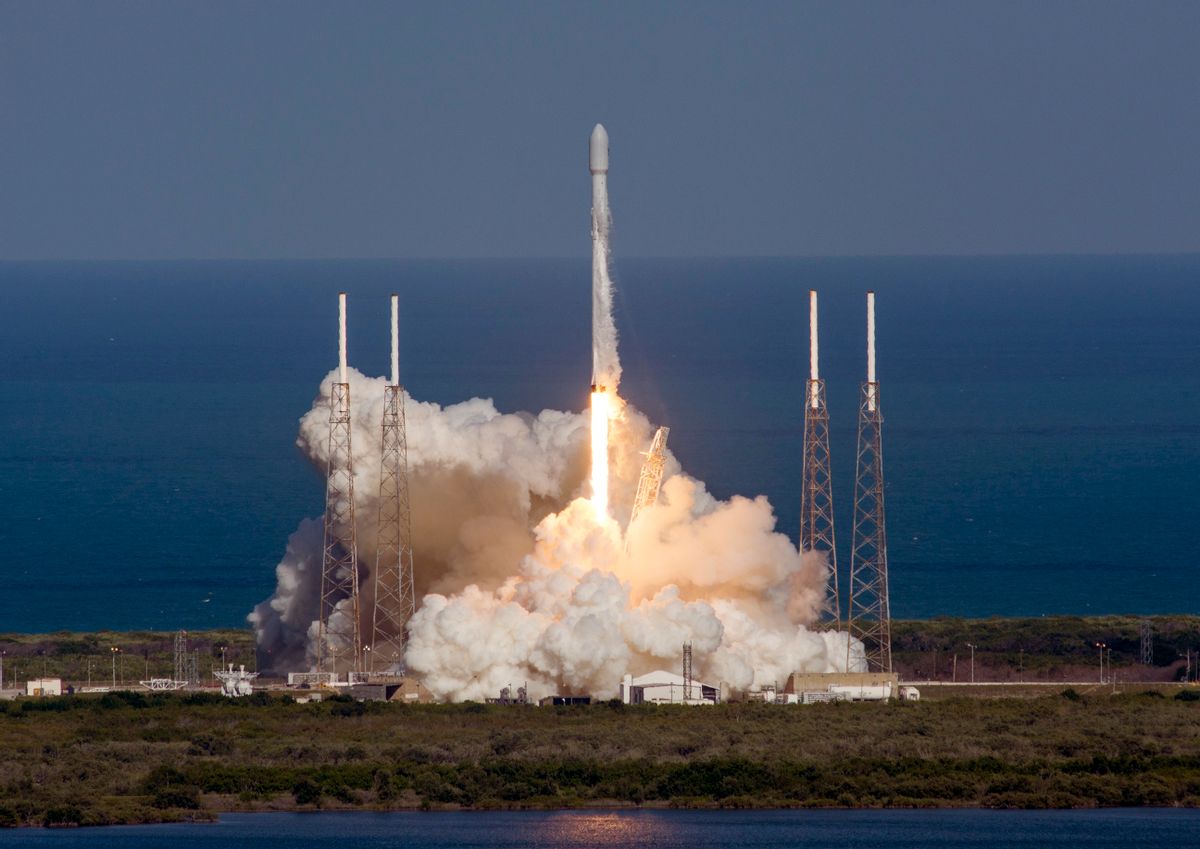According to an application filed with the Federal Communications Commission on Tuesday, SpaceX — the aerospace company founded and owned by Silicon Valley mogul Elon Musk — wants to send 4,425 satellites into space.
If he succeeds, that will be more satellites than are in orbit today.
According to the Union of Concerned Scientists, there are 1,419 active satellites orbiting the Earth right now and approximately 2,600 satellites that no longer work. Musk's proposal would calls for hundreds more than the combined total from both groups.
The goal here would be to provide high-speed internet access at a faster rate and to a larger number of people than ever before. The models Musk has in mind only weigh about 850 pounds, compared to the many telecommunications satellites that can weigh several tons. Each one is expected to ellipse of about 1,300 miles and, as SpaceX wrote in its application, "is designed to provide a wide range of broadband and communications services for residential, commercial, institutional, governmental and professional users worldwide."
As news of Musk's ambitious satellite plan leaks, the Canadian entrepreneur is already waiting for shareholders to vote on his proposed merger between his electric car company Tesla and SolarCity, which produces solar panels. Musk's goal to eventually create solar-powered cars may hit a road block due to Donald Trump's recent election, since current electric-car and solar subsidies are due to decline and Trump's well-known skepticism toward green technology makes it unlikely he'll renew them.
While this in itself may not tank Musk's automotive plans, it certainly is smart for him to diversity at this point.



Shares